Do Phones Affect Productivity?
December 16, 2022
While in your room, you decide to check a notification on your phone. Later, you look at the time and it’s been hours. Somehow you got lost mindlessly scrolling on social media. You now have another unfinished assignment on your to-do list. Nowadays, everyone has a cell phone. Whenever you walk into a classroom, people are usually on their phones instead of interacting with each other or working on assignments. Has this technological advancement positively or negatively impacted us? People of all ages need to learn how to regulate their phone usage as it hinders productivity.
Negative Effects of Phones
Phones negatively affect memory, attention, and productivity. “Mobile phones: The effect of its presence on learning and memory,” a study conducted by Clarissa Theodora Tanil and Min Hooi Yong, states, “those without smartphones had higher recall accuracy compared to those with smartphones.” To put it differently, phones negatively affect the way people take in information. When a person does not have a phone with them, they perform better and remember more. In addition, this study showed having thoughts about your phone also affects your memory, which means that even thinking about your phone affects processing new information and recalling it.
For instance, when asked about her phone affecting her productivity, Ms. White, an English teacher at SPASH, said, “No, I wouldn’t say it hinders my productivity, Although, I do think it will interrupt my thinking. So, I guess it does interrupt my concentration.” This shows that it may not seem like your phone is hurting your concentration, but after thinking deeply about it, you might realize it does hinder you.
The study by Tanil and Yong discusses the fear of missing out, also known as FOMO. It increases social media addiction. People who check their phones a lot could have problems with self-control. Thus, FOMO is a huge reason why students go on their phones. They want to know what is happening, so they keep checking their phone. This can cause a person to feel left out if they do not know what is happening. If a person continuously checks their phone, it doesn’t only affect their ability to focus. They may also have a hard time dealing with self-control, which could affect the amount of things they get done (like assignments).
Furthermore, the aforementioned study also showed “students performed poorer academically with their smartphones presented next to them.” From this evidence, readers can infer this is from FOMO. Some people want to know what their friends, favorite celebrities, or social influencers are doing. People could also be thinking about events that are occurring in the world. Even though you don’t need your phone to think of these things, having a phone on you or near you is a visual and physical reminder.
For example, Lily Meronek, an Associate Scientist at PPD, says that “if there is a group chat with a lot of notifications, it can be distracting. But, if it’s too distracting then I’ll put it on do not disturb.” This shows FOMO being distracting. Lily wants to know what is going on with her friends and family, but it is keeping her from working.
Do Phones Actually Hurt Productivity?
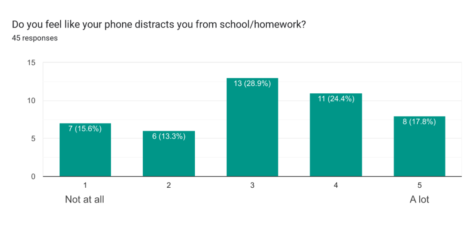
On the contrary, there are people who believe phones do not negatively affect productivity. However, there is a multitude of evidence that shows this is not true. A survey conducted with 45 SPASH student participants, showed a majority of students (38 people or 84.4%) feel like they are at least a little distracted by their phones when doing homework. This shows that students get distracted because of their phones. It hinders their productivity and can negatively affect their grades.
However, if students are aware their phone causes issues academically, why do they still get distracted? Ms. White, an English teacher at SPASH, has an idea: “it’s easier to watch a Tiktok video than revise an essay.” In other words, going on your phone is less mentally challenging than doing assignments. It takes time and can be difficult to do homework, which is why students may go on their phones instead of doing their homework.
One participant of the previously mentioned survey explained that they go on their phone if the teacher goes off topic for a long time and doesn’t get to the point. Students are more likely to go on their phones if they are bored during a lecture. This can distract them from learning important information.
In a study called “The Effect of Cell Phones on Attention and Learning: The Influences of Time and Nomophobia” discusses that during the 3rd quarter of a lesson (about 10 minutes in), people who kept their phone did not retain as much information as people who did not have their phone. This shows that longer lectures or the middle part of lectures is when people start to get distracted and lose concentration.
From the aforementioned survey, 24 (53.3%) of participants believe that their concentration has worsened because of their phone usage. More people said that their concentration has worsened at least a little from using their phones. This shows that students are aware that their phone may be hindering their ability to concentrate.
Was phone usage always a problem in school? Lily Meronek explains that when she was in high school, she did not have a smartphone, so she couldn’t use her phone like people do currently. However, in college, she sometimes used her phone when she was bored. About eight years ago, when Lily was in high school, students did not use their phones as they do now. It shows that phones nowadays have become more distracting.
In addition, Lily Meronek states, “They [people] complain saying they don’t have enough free time to do other stuff but then they’re on their phone instead of doing those things.” Phones can prevent people from doing the things that they want to do. If people learn how to lessen their phone usage, they will have more time for their interests.
Are There Solutions?
There are many ideas to improve productivity and reduce phone usage. When asked about SPASH’s cell phone policy, Ms. White explains, “I think if it was done systematically or throughout the school, it would result in increased attention and grades.” In other words, if everyone at school followed the cell phone policy, students would be positively affected. While this could be a viable solution, some of the research says otherwise. As stated earlier, people can experience the fear of missing out (FOMO), which could distract them if they don’t have their phones put away. Another thought that research does not say, is that some students may be dealing with a difficult time outside of school where they need their phone to communicate.
In addition, Ms. White says, “I think between passing periods and lunch. Those would be appropriate times.” Thus, students should put their focus on school during their class hours. They are able to check their phone during passing periods and lunch, so it’s not like they are unable to go on their phones at all during school.
The study conducted by Tanil and Yong proposes a different solution, “It is important that we manage or integrate the smartphones into the classroom but will remain a contentious issue between instructors and students.” This means teachers could incorporate phones into their lessons and schoolwork. While this could help students stay focused on the lesson, some students would look at other things not pertaining to school. This may not be very effective because even if a student is using their phone for educational purposes, they can still get distracted by notifications they get. This study also discussed some ways to keep students interested by using Kahoot and Mentimeter, which allow them to be on their phones for educational purposes. This shows that using engaging activities is a way to keep students off their phones. This will help them resist the urge to go on their phones.
“The Effect of Cell Phones on Attention and Learning: The Influences of Time and Nomophobia,” explains that when a lesson is short, cell phones do not hinder a person’s concentration. In longer lessons, people become distracted after 10-15 minutes. In other words, cell phones do not cause a problem when a lesson is short. This means teachers should plan either shorter lectures or have activities in between to keep students’ attention. Another possibility is having an interactive aspect every 10-15 minutes.
Is there a solution to lessen screen time that is not school related? Lily Meronek explains, “I tried to use the limit screen time feature. But, I kept overriding it because sometimes I wanted to go on my phone for a longer amount of time. So, it got annoying.” This shows that people could use programs or settings to limit their phone usage. This solution’s downside is that it can be ineffective. The settings are easy to override, which makes the feature somewhat useless and doesn’t help in the long run. However, this could still be a good option for some.
In the long run, people should be more conscientious about their phone usage as it impedes productivity. Realizing this is a problem in your life can help improve grades or the amount of things you get to do. Reducing phone usage will allow people to have more time to do the things they love.

























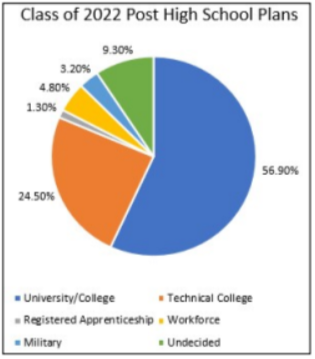
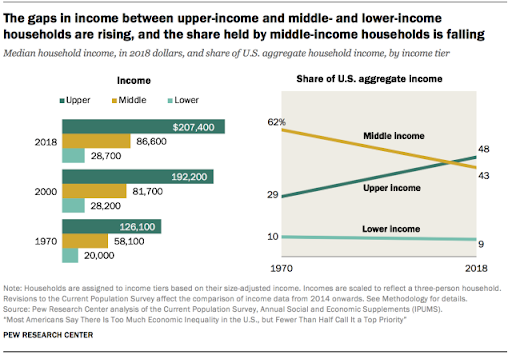











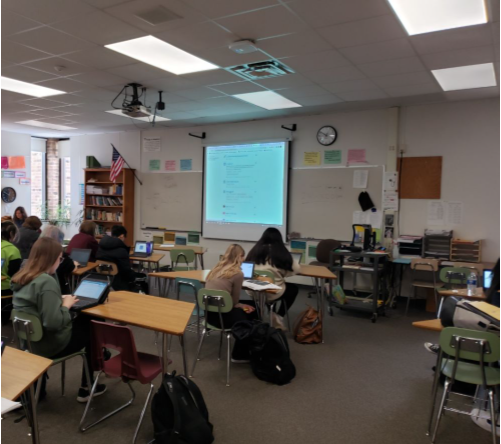
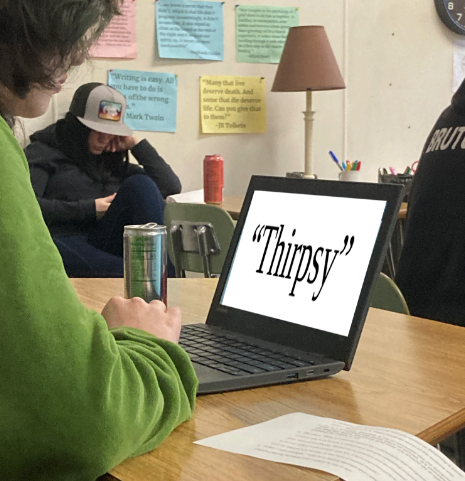







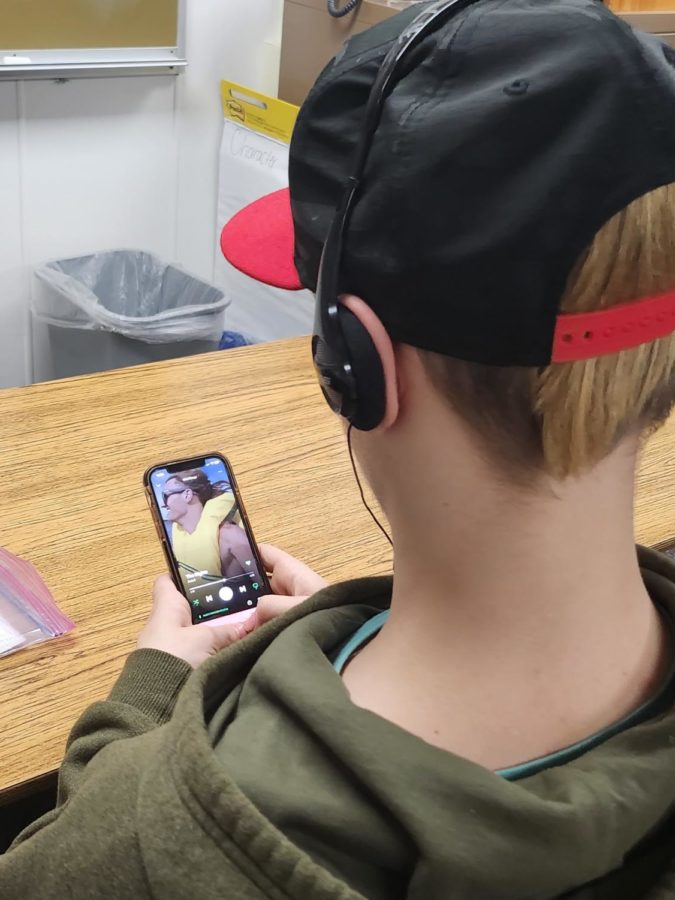







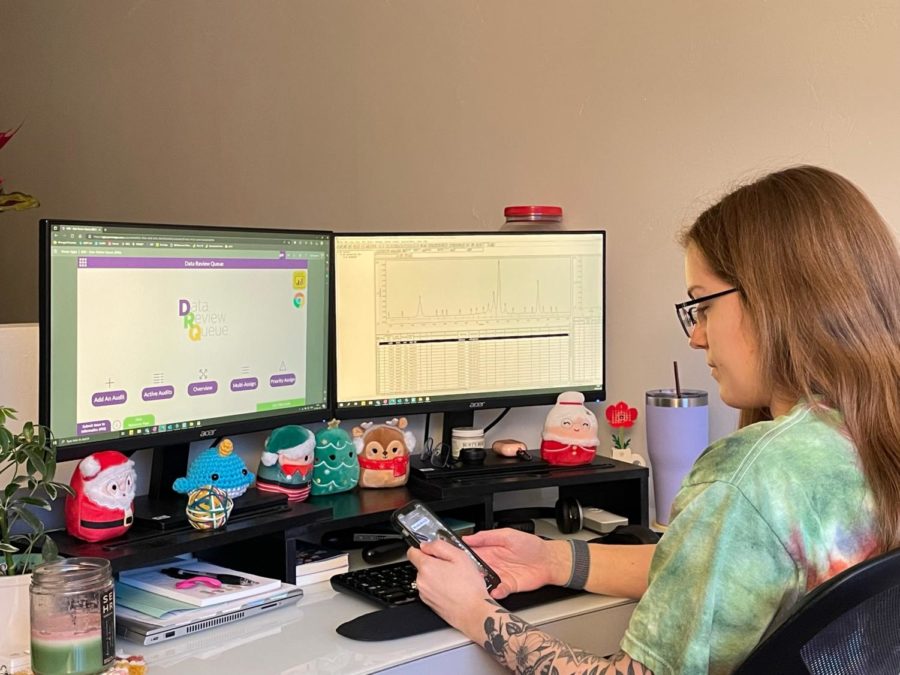




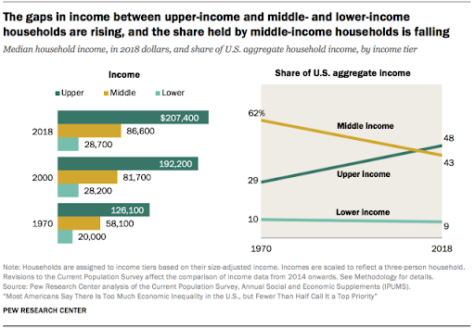



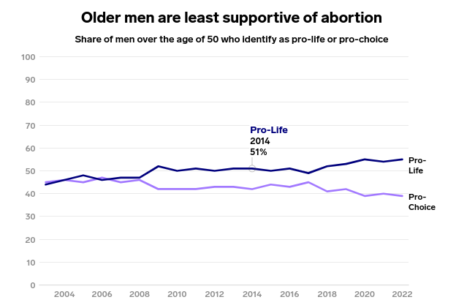
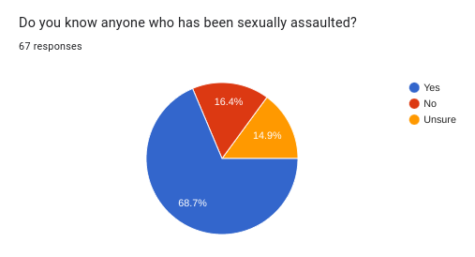
Damien Kinney • Dec 19, 2022 at 12:55 PM
Mallory, I like how you interviewed many different people to get different views on your topic. Along with going into detail with your information as well.
Brooklyn Pagel • Dec 19, 2022 at 9:20 AM
Mallory I liked how you interviewed a lot of people to get everyone’s point of view and it really makes your article stronger. I also really liked your hook and how you made it relatable because every teenager can admit their phone sometimes distracts them. Your article flows really well and it all around great.
max • Dec 19, 2022 at 8:25 AM
Mallory, I liked how you interviewed a lot of people. I also liked how you analyzed the information you gathered.
Frank Hagen • Dec 19, 2022 at 8:18 AM
Mallory, I think your article was great because it presented a lot of really valuable information. I like that you included multiple studies and a survey because they support your claim very well. I also think the topic is very important. I notice that people don’t interact with each other as much in school, and I think it is a problem.